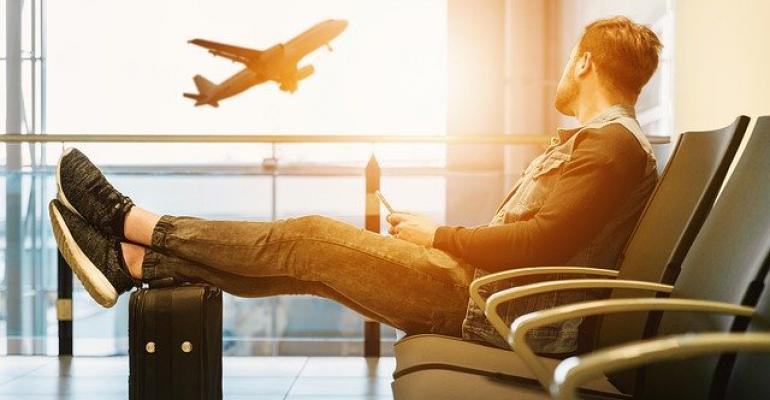Richard Golinowski is swimming in hand sanitizer. The vice president of operations support at the Metropolitan Washington Airports Authority, which operates Washington National and Dulles International airports, is on target to soon have more than 700 hand-sanitizer stations throughout the facilities, one of a number of steps the authority is taking to create a safe environment for travelers.
Golinowski talked about his efforts as part of a Meetings Mean Business Coalition virtual discussion series looking at the future of meetings and events in the coronavirus era.
“We’ve worked with our airline partners and our concessions partners to try to make sure that we have a unified front,” Golinowski said. “When you come to [our airports]…you're going to see a lot of social distancing, signs everywhere…we've put hand sanitizers out wherever we can…we’ve put plexiglass partitions in wherever there is a contact point with a passenger and an employee…and we have dispensers with things like masks and gloves.”
One of the challenges, he says, is working toward consistency across the country. “We want to make sure that when people fly into our airport, what they experienced in Texas, Florida, New York, or wherever they came from is similar to what they see here,” he says. “Everybody has their own idea of what they want to do, but for the most part the airport industry has aligned itself.”
Golinowski points to the success of the authority’s mask mandate. “When we implemented the policy early on that employees had to wear masks, it really set a good tone for our customers. They knew that the airports were taking [coronavirus] seriously and trying to protect their employees and customers.”
While masks are required at the vast majority of the largest airports, including National and Dulles, there have been holdouts. A mask mandate for the Minneapolis-St. Paul International Airport, for example, begins on Monday, July 27, and at Hartsfield International Airport in Atlanta the city-owned airport requires face masks but Georgia Gov. Brian Kemp has said mask orders are illegal.
One strategy that Golinowski does not plan to pursue is taking travelers’ temperatures or any other medical screening for the virus. “We don’t have the skill set in order to do that properly and safely for our customers, so I’m not anticipating that’s coming.” Eastern Iowa Airport in Cedar Rapids, Iowa, may be the first U.S. airport to institute a mandatory medical screening for travelers. The local airport commission will be voting on the plan in the near future. Down the line, coronavirus-sniffing dogs could be a less invasive way for airports to detect infected travelers. Recent studies report that trained dogs have a 94 percent success rate discriminating between saliva samples with and without Covid-19.
While disease detection may be possible, for Golinowski, the goal is hospitality. “We are making sure that the facilities are as welcoming as possible and that people feel safe and comfortable when they come in here—and that it carries through on their trip once they get on the aircraft. It’s been a challenge, but we have worked hard and we have a lot of people working daily at the airports making sure that customers feel safe.”





